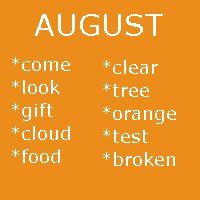But he dropped his eyes, suspecting a flaw in his argument. ‘I just don’t want him beating on me all the time,’ he said at last. ‘I ain’t no dog.’ She sighed, and turned slightly away, looking out of the window. ‘Your Daddy beats you,’ she said, ‘because he loves you.’ (21)
One cannot read this book and overlook the concept of the
father. Paternal influence, more specifically, fatherly love is so crucial to
the process of self-discovery. The absence of that particular kind of love, damages
every single character. Yes, the father; protection, guidance, love. And when that
influence is scarce or non-existent, it’s sometimes replaced with a different
source, a different paternal institution, a different Father. The Lord.
But this paternal connection doesn’t work for everyone. It’s
a source of conflict for the fatherless and loveless. John’s character is the best
example of this. At first, John cannot love the Lord because his father loves
the Lord, yet the father does not love his son John. It doesn’t make sense to
John. Because of his confusion he refuses to be part of anything his father is
devoted to. What’s the reason? Why can’t the father love his son?
Read the rest of the review on the new site -- A Morose Bookshelf





